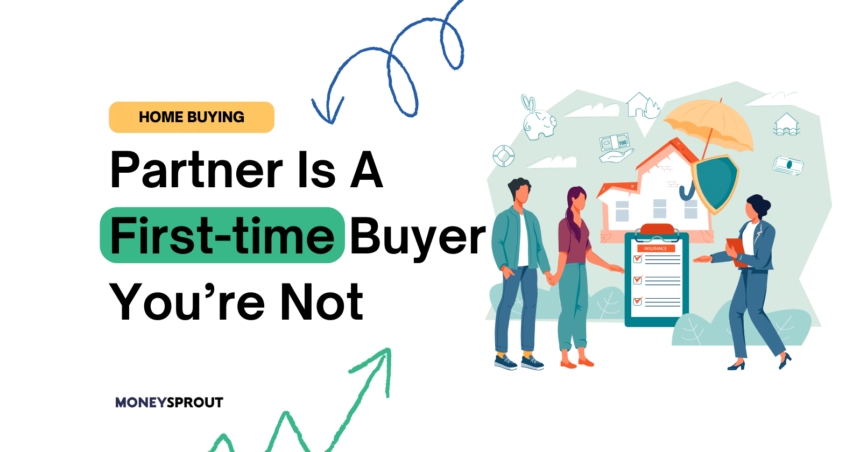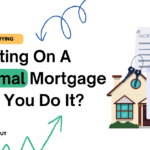You and your partner are ready to move in together but your partner is a first-time buyer and you are not. This can be tricky to navigate because first-time buyers are usually exempt from Stamp Duty and mortgage providers assess their applications differently. Before making any purchase decisions, it’s important that you know how your situation will affect the process of buying your house together.
Quick Overview
Many of the benefits of being a first-time buyer won’t be open to you if your partner is a first-time buyer but you are not. For instance, you won’t qualify for schemes like Help to Buy or for Stamp Duty relief. Your mortgage eligibility and how much you need for a house deposit can also be affected because your mortgage provider will assess both you and your partner’s financial situations.
What is a First Time Buyer?
A first-time buyer is defined on the government website as:
‘An individual or individuals who have never owned an interest in a residential property in the United Kingdom or anywhere else in the world and who intends to occupy the property as their main residence.’
UK Government
Simply put, you need to have never owned property before. The other key point is that you are buying the property to live in, not to rent out.
First-time buyers get some benefits, like Stamp Duty relief and access to housing affordability schemes, which you may have enjoyed when you bought your first home.
Unfortunately, if you’re buying a home as a couple and one of you isn’t a first-time buyer, then your partner won’t get most of these benefits.
Can I Be a First-Time Buyer Twice?
It may sound silly to think that you could be a first-time buyer twice. After all, you can only buy a house for the first time once, right? Technically that is true. However, some mortgage providers will class you as a first-time buyer if you haven’t had a mortgage for a number of years, even if you had one previously. Attitudes towards first-time buyers can differ between lenders, so it is worth shopping around for your new mortgage.
Can I Pretend to Be a First Time Buyer?
You should not pretend to be a first-time buyer because doing so could break the law. There are plenty of ways somebody could find out that you are not telling the truth. Your name will be on the Land Registry, which is open to the public for a fee.
They could also check to see if you’ve paid Stamp Duty previously on your HMRC records, or look for a mortgage on your credit history.
When you bought your previous house you may have had to sign a declaration stating that you were a first-time buyer, especially if you accessed a government scheme. In order to pretend to be a first-time buyer you may have to sign another one, meaning that you would be lying to the government.
If you were found out you would face serious consequences. You could lose your property, face a fine or even a criminal conviction. It just isn’t worth the risk.
Paying Stamp Duty
First-time buyers are usually exempt from Stamp Duty, so you may not have had to pay it before. Stamp Duty Land Tax is a government tax that you pay when you purchase property or land in the UK. First-time buyers receive Stamp Duty relief, which means they are subject to lower rates. There are also thresholds for Stamp Duty, meaning that you only pay under these circumstances:
- You are a first-time buyer purchasing a property worth more than £425,000.
- You are not a first-time buyer and you are purchasing residential property over £250,000, or non-residential property over £150,000.
Your partner would probably be exempt from Stamp Duty, or at least pay a lower rate as a first-time buyer, if they were purchasing property by themselves. But since they are looking to buy with you, they will unfortunately be subject to the £250,000 threshold and higher rates.
Mortgage Eligibility
When you apply for a mortgage with somebody else, the lender takes both of your financial situations into consideration. Buying as a couple typically means that you can borrow more, as long as you both have stable incomes and good credit scores. Your experience paying a mortgage successfully without missing payments may actually help your partner access lower rates as your new mortgage provider will see you as more trustworthy.
On the flip side, first-time buyers are often eligible for specific mortgage incentives or products. Your status as a homeowner would disqualify both of you from these. However, being able to access lower interest rates and more equity may balance out the disadvantages of this. It completely depends on your individual circumstances.
It is also worth noting that your partner’s credit score and employment status will also affect your ability to access a mortgage and what rates you are offered. If they have a black mark on their credit history or an unstable income, a lender might see you as more risky. Since your finances will be linked once you get a mortgage together, you should consider these factors seriously and have open conversations with your partner.
Can I Get Financial Help if My Partner is a First Time Buyer and I’m Not?
It is unlikely that you will get the financial help available to first-time buyers because these are reserved for when all parties are purchasing property for the first time. However, there are some schemes that offer financial aid you may qualify for.
1. Lifetime ISA
A Lifetime ISA is a savings account designed to help you either save for your first home or to support yourself after you retire. You can pay up to £4,000 into it each year and the government will give you a 25% bonus on however much you save.
Your partner will be able to access one as a first-time buyer and use the money to jointly purchase a house with you, even if you are not a first-time buyer. You can also set one up but unfortunately, you won’t be able to use the money towards purchasing property without incurring a hefty 25% fine.
Quick Tip: There are age limits on who can set up a Lifetime ISA, as well as restrictions on how much you can buy property for. You should look into the terms and conditions carefully before making a decision.
2. Shared Ownership
Shared Ownership is a scheme aimed at people who can’t afford to buy their own houses. You will purchase part of the property and pay rent on the percentage that you can’t afford to buy. Crucially, you are allowed to purchase the rest once you can afford to.
This scheme is open to first-time buyers and previous homeowners. It is an affordability scheme, however, which means that you will have to prove that you can’t own a home without help. For example, you and your partner’s income combined has to be less than £80,000 per year, or £90,000 per year if you live in London. It is worth remembering that there may be hidden costs involved with this.
Final Thoughts
If either you or your partner have owned property before, you will be treated as previous homeowners by the government and by most mortgage providers. Many of the benefits of being a first-time buyer will be closed to you, such as Stamp Duty Relief and Help to Buy schemes. However, there are also benefits to not being a first-time buyer. You may be able to access lower interest rates or more capital from your mortgage provider, as long as your credit history is good.
Read More From Moneysprout:




